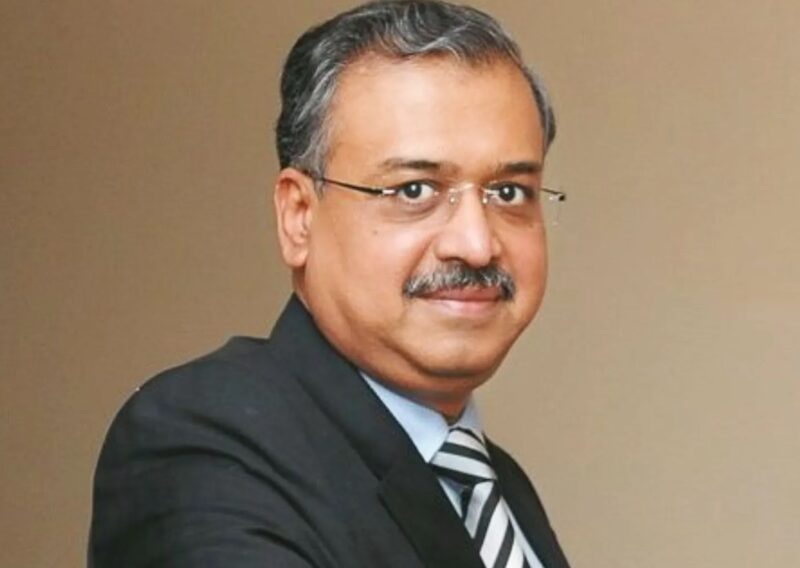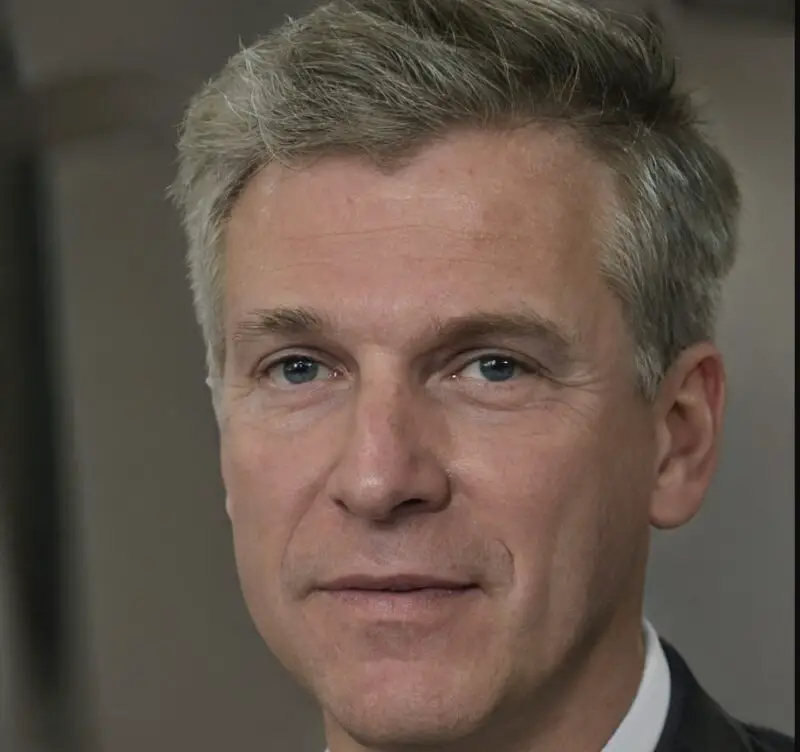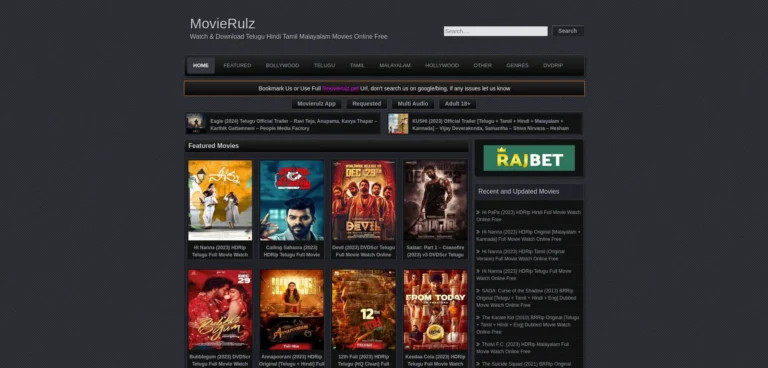Dilip Shanghvi is one of India’s most influential businessmen, known for his steady rise in the pharmaceutical industry. As the founder and leader of Sun Pharmaceutical Industries, he played a key role in transforming the company into a global giant.
This article will cover his journey, his significant contributions, and his influence on the industry.
| Category | Details |
|---|---|
| Full Name | Dilip Shanghvi |
| Born | October 1, 1955 |
| Company | Sun Pharmaceutical Industries |
| Industry | Pharmaceuticals |
| Role | Founder, Managing Director |
| Net Worth (2024) | $25.7 billion |
| Awards | Padma Shri (2016) |
| Major Contributions | Global expansion of Indian pharmaceuticals, leadership in specialty drugs |
| Other Positions | Member of RBI Central Board, Chairman of Gujarat Biotechnology University |
| Company Revenue (2023) | ₹43,279 crore |
Table of Contents
ToggleNet Worth in 2024
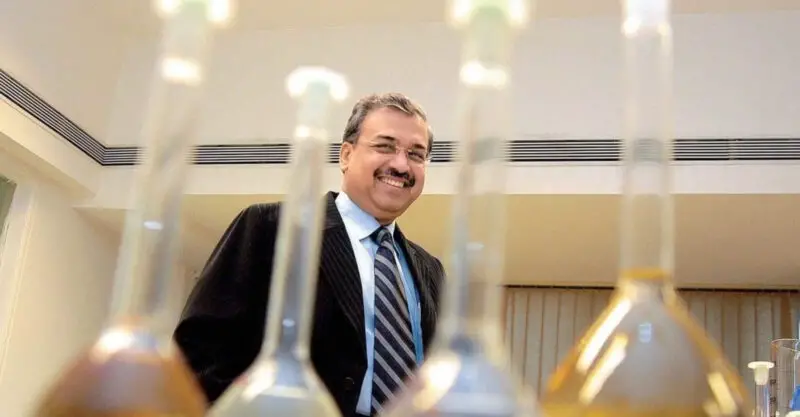
Dilip Shanghvi’s net worth in 2024 is reported at $25.7 billion, making him one of the wealthiest individuals in India. His fortune is primarily driven by his leadership of Sun Pharmaceutical Industries, which has become a global leader in the pharmaceutical sector.
Under his guidance, the company expanded into international markets, specializing in both generic drugs and specialty medications, cementing its place in the industry.
Sun Pharma’s financial performance has been a significant contributor to Shanghvi’s wealth. The company achieved record consolidated revenue of ₹43,279 crore in 2023, with a net profit of ₹8,474 crore, reflecting the effectiveness of his strategic decisions.
Not only did Sun Pharma manage to grow in tough market conditions, but it also rebounded from previous challenges, such as its acquisition of Ranbaxy, which initially impacted profitability.
Shanghvi’s personal investments and his involvement in several advisory roles further solidify his financial standing. He holds positions in various institutions, including serving on the Reserve Bank of India’s central board and as chairman of Gujarat Biotechnology University, enhancing his influence across sectors.
Early Life and Background
Dilip Shanghvi was born on October 1, 1955, in the small town of Amreli, Gujarat. His early life was rooted in a modest family background, where his father ran a small wholesale business dealing in pharmaceuticals.
It was here that Shanghvi got his first exposure to the world of medicine. He studied at Bhawanipur Education Society College in Kolkata, where he completed his education in commerce, not science or pharmaceuticals as one might expect from a pharma leader.
The entrepreneurial spirit that Shanghvi developed came from his time helping in his father’s business. Rather than pursuing a conventional career, he saw an opportunity to start something on his own, utilizing his understanding of the pharmaceutical market.
In 1983, Shanghvi founded Sun Pharmaceutical Industries in Vapi, Gujarat, with an initial capital of ₹10,000 and just five products focusing on psychiatry ailments. His humble beginnings stand in stark contrast to the massive empire he has built today.
Founding of Sun Pharmaceutical

In 1983, Dilip Shanghvi laid the foundation for Sun Pharmaceutical Industries in Vapi, Gujarat. The company started with a focus on producing just five psychiatry-related drugs, addressing unmet needs in the Indian market.
With an initial investment of only ₹10,000, Shanghvi’s vision was to create affordable, high-quality generic medications. From these humble beginnings, Sun Pharma has grown into one of the largest generic pharmaceutical companies in the world.
A key factor in Shanghvi’s success was his strategic focus on niche markets. Rather than competing with large multinational companies in common drug categories, he initially targeted specialty segments like psychiatry and cardiology.
This allowed Sun Pharma to establish a foothold in underserved areas, which contributed to its rapid growth.
By the 1990s, Shanghvi had expanded the company’s operations beyond India, making a mark in the global market. His leadership in mergers and acquisitions further boosted the company’s portfolio.
Acquiring companies like Ranbaxy Laboratories and Taro Pharmaceuticals were significant moves that positioned Sun Pharma as a dominant player, not only in India but across the world.
Despite challenges, such as the integration of these acquisitions, Shanghvi’s business acumen and decision-making pushed Sun Pharma to new heights, including its ranking as the largest pharmaceutical company in India and a global leader in specialty generics.
Key Business Moves
Some of his most important moves include targeted acquisitions and a deep focus on specialty segments in the pharmaceutical industry.
Acquisition of Ranbaxy
In 2014, one of the most significant deals in India’s pharmaceutical history took place when Sun Pharma acquired Ranbaxy Laboratories for $4 billion. This acquisition helped Sun Pharma expand its global reach and become the largest pharmaceutical company in India.
While the deal initially presented challenges, including regulatory issues, Shanghvi’s leadership turned it into a long-term asset for the company. A fun fact here is that despite the initial setbacks, Sun Pharma reported its highest-ever consolidated revenue of ₹43,279 crore in 2023.
Expansion Through Taro Pharmaceuticals
Another key acquisition was Taro Pharmaceuticals, a U.S.-based company that specializes in dermatology products. Sun Pharma gained majority control in 2010, helping the company boost its presence in the U.S. market.
Shanghvi’s ability to focus on niche segments like dermatology allowed Sun Pharma to grow faster than many competitors in the generics market.
A well-known quote from Shanghvi offers insight into his business mindset: “Success to me is not just about having money, but about creating something that has a lasting impact.”
Focus on Specialty Drugs
Shanghvi understood early on that competing in common drug categories would be a tough battle. Instead, he focused on specialty drugs—a move that allowed Sun Pharma to differentiate itself from competitors.
The emphasis on this segment contributed to significant growth, especially in international markets like the U.S. and Europe.
Industry Impact and Leadership
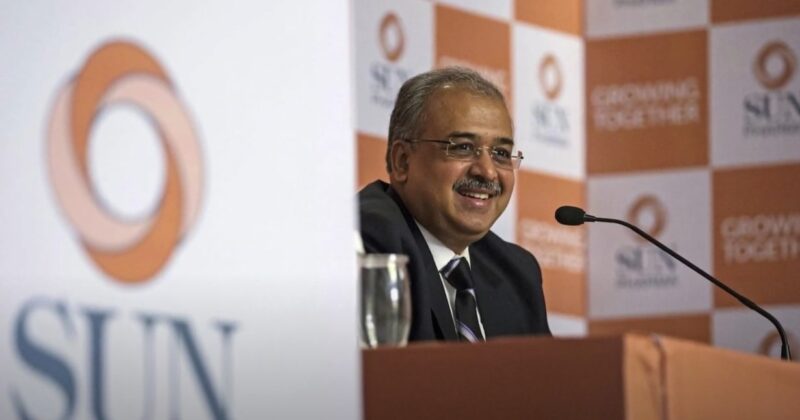
Known for his strategic foresight and ability to anticipate market trends, Shanghvi has transformed Sun Pharma into a pioneer in specialty generics.
Revolutionizing the Indian Pharma Industry
Shanghvi played a crucial role in globalizing the Indian pharmaceutical industry. By focusing on producing affordable, high-quality generics, he helped reduce the cost of medications for millions worldwide.
Sun Pharma’s growth in international markets, especially the U.S., has made India a hub for generic drug production, benefiting the country’s economy and the global healthcare system. A well-known industry leader commented, “Dilip Shanghvi’s vision reshaped India’s presence in the pharmaceutical world.”
Shanghvi has often been called the “reluctant billionaire” because he avoids the limelight. Despite his immense influence, he remains a low-profile leader, preferring to let his company’s success speak for itself.
Awards and Recognitions
Dilip Shanghvi’s contributions to the pharmaceutical industry have earned him several awards and honors. His most notable recognition is the Padma Shri, awarded to him in 2016 by the Government of India for his impact on trade and industry. This is one of the highest civilian honors in the country.
Recognition for Business Acumen
Shanghvi has consistently been listed among India’s top business leaders. He was named as one of the most influential people in the Indian pharmaceutical sector, and his ability to make strategic acquisitions, like Ranbaxy and Taro Pharmaceuticals, is widely recognized in the business community.
His leadership and decisions have not only transformed Sun Pharma but also shaped India’s global presence in generic drugs.
Despite the wealth and recognition, Shanghvi prefers to keep a low profile. He once mentioned that success for him isn’t just about accumulating money but also about making an impact, which shows in his focus on expanding affordable healthcare.
Challenges Faced in Business
Dilip Shanghvi’s journey with Sun Pharma wasn’t without obstacles. One of the biggest challenges came in 2014 when Sun Pharma acquired Ranbaxy Laboratories. The deal was worth $4 billion, but it brought significant regulatory issues due to Ranbaxy’s past troubles with the U.S. Food and Drug Administration (FDA).
The acquisition initially hurt Sun Pharma’s profits, and Shanghvi had to navigate through complex legal and regulatory hurdles to stabilize the company.
Ranbaxy’s Regulatory Issues
Ranbaxy had several issues with the FDA, including concerns about the quality of its products. This led to a series of import bans and investigations, which caused financial strain on Sun Pharma post-acquisition.
Shanghvi’s ability to handle these problems with a strategic approach, focusing on long-term recovery rather than short-term profit, was critical in turning things around.
Global Expansion of Sun Pharma

Under Dilip Shanghvi’s leadership, Sun Pharmaceutical Industries expanded its operations to more than 100 countries, making it a global leader in the pharmaceutical industry.
Starting from a small base in India, the company now holds a strong position in key international markets, including the U.S., Europe, and Japan.
U.S. Market and Key Acquisitions
The U.S. market, the largest pharmaceutical market in the world, has been a major driver of Sun Pharma’s global success. Through the acquisition of Taro Pharmaceuticals in 2010, Sun Pharma gained significant access to the U.S. market, particularly in the dermatology and neuroscience segments.
Today, the U.S. accounts for over 30% of Sun Pharma’s revenues, contributing billions to its annual earnings. In FY2023, Sun Pharma reported consolidated revenue of ₹43,279 crore, with a significant portion coming from its U.S. operations.
The acquisition of Ranbaxy Laboratories for $4 billion in 2014 further solidified Sun Pharma’s position, making it one of the largest generic drug manufacturers globally. Despite initial challenges with regulatory issues, this move allowed the company to expand its product portfolio and increase its market share in over 40 countries.
Global Reach
Sun Pharma’s operations span across six continents, with 47 manufacturing facilities and a wide product range that includes over 2,000 products. Its focus on specialty drugs in areas like oncology, dermatology, and neurology has allowed the company to dominate niche segments with limited competition, providing higher margins and growth opportunities.
In 2023, Sun Pharma’s specialty drug segment accounted for a significant portion of its revenue, highlighting the company’s strategic focus on high-impact areas.
Sun Pharma stands as India’s largest pharmaceutical company by market value and is among the top five generic drugmakers in the world.
FAQs
How did Dilip Shanghvi get into the pharmaceutical business?
Dilip Shanghvi got into the pharmaceutical business by helping his father with his small wholesale business in Kolkata, where he saw the potential to produce affordable generic drugs. This experience led him to start Sun Pharma.
Is Dilip Shanghvi involved in philanthropy?
Yes, Dilip Shanghvi is involved in various philanthropic efforts, particularly in education and healthcare. He has supported initiatives in these areas, including funding research and development in biotechnology.
Does Dilip Shanghvi hold any positions outside Sun Pharma?
Yes, Shanghvi holds several important positions outside of Sun Pharma. He is on the Reserve Bank of India’s Central Board and serves as the Chairman of Gujarat Biotechnology University.
What was Dilip Shanghvi’s first major acquisition?
His first major acquisition was Taro Pharmaceuticals in 2010. This deal gave Sun Pharma a strong presence in the U.S. market, particularly in dermatology.
How does Dilip Shanghvi handle competition in the pharma industry?
Shanghvi handles competition by focusing on niche segments like specialty drugs, where there is less competition but higher margins. This strategy has helped Sun Pharma grow in both domestic and international markets.
Does Dilip Shanghvi still run Sun Pharma?
Yes, as of 2024, Dilip Shanghvi remains active as the Managing Director of Sun Pharma, continuing to shape the company’s strategy and global presence.
Last Words
Dilip Shanghvi’s journey from a small-town businessman to one of the most influential figures in the global pharmaceutical industry is a story of vision, resilience, and strategic decision-making.
Through his leadership at Sun Pharma, he has not only shaped the growth of the company but also made a significant impact on the Indian economy and healthcare worldwide.


